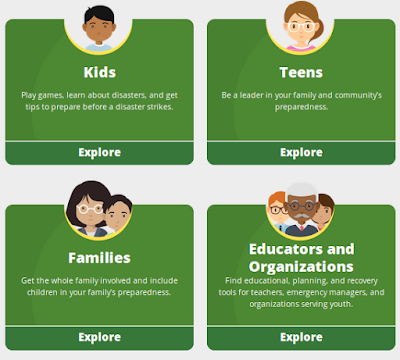Note: September is National Preparedness Month . Follow this year’s campaign on Twitter by searching for the #NatlPrep hash tag.
This month, I’ll be rerunning some edited and updated older preparedness essays, along with some new ones.
#14,440
No matter where you live, if you've got kids, the odds they will have some sort of brush with an emergency or disaster over the next decade. Hopefully it will happen when they are with their parents, but it could happen at school, or other times when they are away from home.
It could be an earthquake, severe weather, an active-shooter, or some other unexpected crisis. And while you can hope it never happens, the better choice is to make sure they are prepared to cope with it.Those of us of a certain age probably got our early initiation into preparedness in the boy or girl scouts, where we learned basic first aid, and what to do in an emergency. Today, that is less likely to be the case.
Growing up in Florida, I got used to the `drill' of preparing for hurricanes at a very early age. I am also the product of the cold war, of the Cuban Missile Crisis (I was 8), of duck and cover drills, weekly CONELRAD alerts on TV, and films like Survival Under Atomic Attack and `Bert the turtle’ PSAs in elementary school.
It was, admittedly, a different time. But it probably led me into an early career as an EMT (age 18) and Paramedic (age 20). Not such a bad result, actually.Today, while many threats remain, parents appear more reticent to discuss emergency preparedness with their kids. Fortunately, disaster preparedness – particularly for kids - has come a long way from the `bad old days’ of the cold war.
 |
| 30 Second PSA |
Ready.gov provides age appropriate tools for parents and teachers to teach emergency preparedness to both kids and teenagers.
 |
| READY.GOV |
While most parents want to protect their kids from undo worry - when a disaster threatens, it threatens all of us – regardless of our age.
Helping kids to understand more about emergency preparedness and community resilience will help them cope (and perhaps, even help) in the event they, or their community, are caught up in a disaster.
